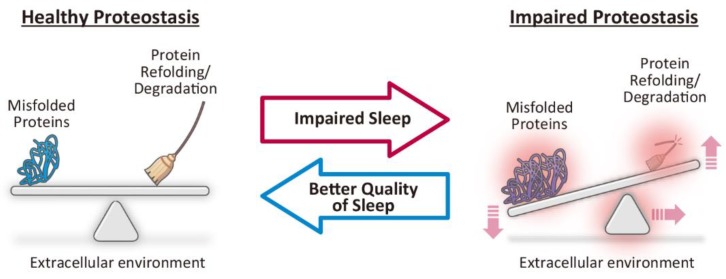Figure 2.
Impaired sleep as a potential therapeutic target to restore proteostasis. Healthy proteostasis is maintained through the coordination of various intra- and extracellular systems that regulate protein synthesis, folding, disaggregation, and degradation (left). Increased synthesis of misfolded proteins, dysfunction of protein refolding or degradation systems, or changes in extracellular environment can lead to impaired proteostasis and result in the accumulation of misfolded and aggregation-prone toxic proteins (right), which is a common pathomechanism underlying neurodegenerative diseases. Based on recent studies that have indicated that impaired sleep leads to impaired proteostasis (middle; red arrow), future studies that better examine the relationship between sleep and proteostasis could lead to the development of novel therapeutics that restore healthy proteostasis via better quality of sleep (middle; blue arrow).

